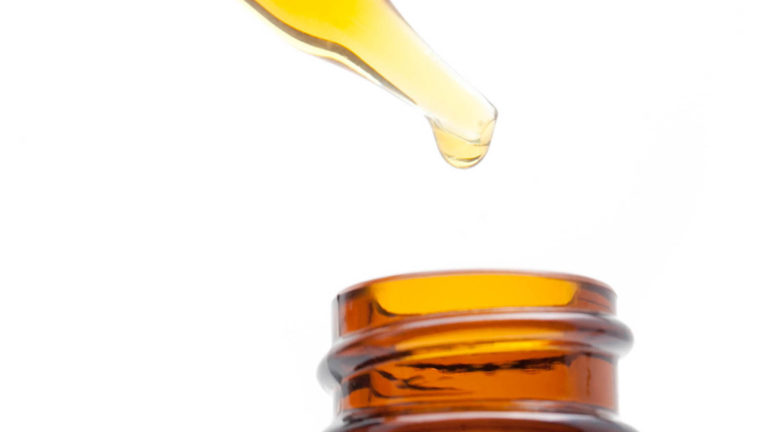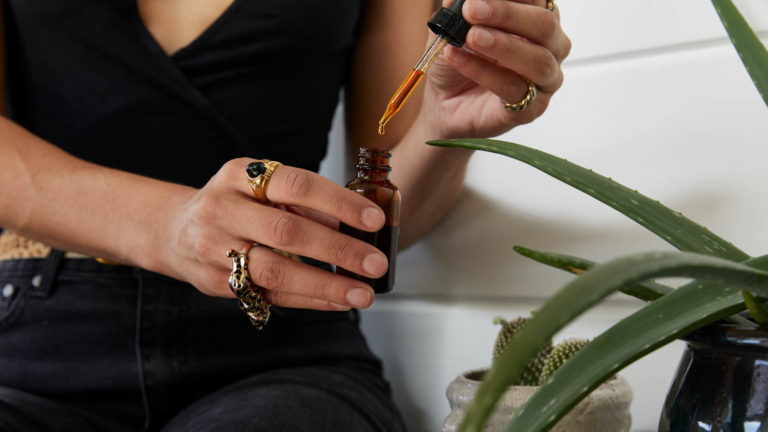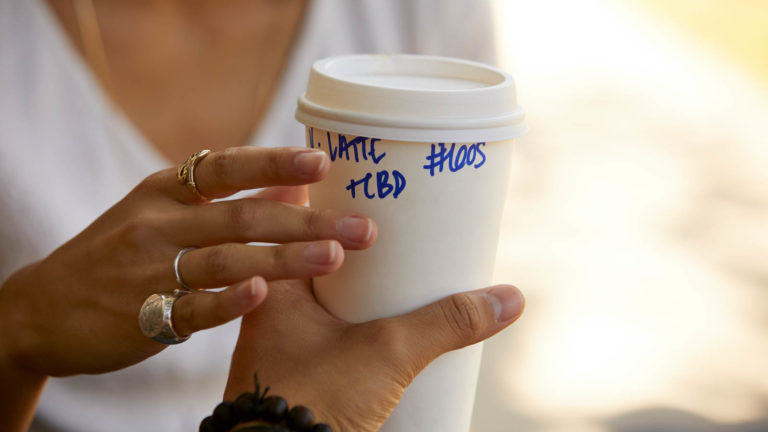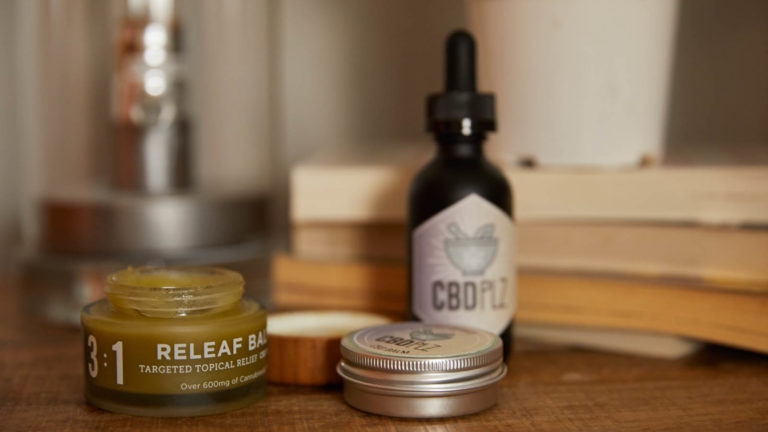With the exception of its medical marijuana program, the state of New Hampshire has not provided clear or explicit directions on the legal status of cannabidiol (CBD). Instead, the state has largely deferred to federal guidelines. As a result, the changes introduced by the 2018 Farm Bill have made CBD oil and other CBD products increasingly accessible in New Hampshire.
Currently, it is fairly easy to find CBD products in the state, but New Hampshire authorities recently advised businesses that CBD and CBD oil are not allowed to be used as an additive in foods and drinks.
What is CBD?
CBD is a non-intoxicating cannabinoid found in cannabis. After tetrahydrocannabinol (THC), cannabidiol (CBD) is the second-most abundant cannabinoid in the plant, and has many potential therapeutic benefits, including anti-inflammatory, analgesic, anti-anxiety, and seizure-suppressant properties. CBD can be sourced from both marijuana plants and hemp plants, which are legal in most countries as they contain minuscule amounts of THC.
 Photo by: Gina Coleman/Weedmaps
Photo by: Gina Coleman/WeedmapsImage lightbox

Combine THC and CBD to fully employ the entourage effect; THC and CBD work hand-in-hand to amplify each others' effects.
Why is CBD sometimes illegal?
Even though hemp plants typically don't produce enough of the cannabinoid THC to cause intoxication, all types of cannabis, including hemp, were considered illegal under the 1970 Federal Controlled Substances Act. The legislation swept all cannabis into the Schedule I category, which defined cannabis as a substance with a high potential for abuse, no accepted medical use, and a likelihood for addiction.
The Hemp Farming Act of 2018 legalized hemp cultivation and created a pathway to remove industrial hemp from Schedule I status by creating a legal divide: Hemp is cannabis that contains less than .3% THC by weight, and marijuana is cannabis that contains more than .3% THC. Hemp-derived CBD was thus descheduled from the Controlled Substances Act by the bill, but CBD that is derived from the marijuana plant is still considered federally illegal because marijuana is still categorized as a Schedule I substance. While hemp is now considered an agricultural commodity, it still must be produced and sold under regulations that implement the bill.
The Farm Bill also gave the US Food and Drug Administration (FDA) the authority to regulate CBD's labeling, therapeutic claims, and its use as a food additive. Despite the passage of the 2018 Hemp Farming Bill, the FDA has taken the stance that even hemp-derived CBD may not be added to food and beverages, nor marketed as dietary supplements. While the FDA has begun a process of reevaluating its stance on such CBD products, it has yet to revise its rules or specifically regulate CBD products, leading to further confusion. The FDA has been strict when it comes to health claims and content that could be construed as medical advice about CBD, and has released guidelines for vendors and manufacturers to follow regarding the production and sale of hemp-derived CBD.
 Photo by: Gina Coleman/Weedmaps
Photo by: Gina Coleman/WeedmapsImage lightbox

The federal legislation thus still highly regulates the production and sale of hemp, and its cannabinoids, including CBD. The Hemp Farming Bill also allows states to regulate and even prohibit CBD cultivation and commerce. In addition, states may regulate CBD in foods, beverages, dietary supplements, and cosmetic products independently of the FDA finalizing its views on such products.
New Hampshire CBD laws
Cannabis laws in New Hampshire are somewhat rudimentary. Recreational cannabis is illegal, and the state has a legal medical marijuana program. But beyond that, New Hampshire lawmakers have opted to defer to federal policy when it comes to CBD products.
In particular, authorities in the state look to the 2018 Hemp Farming Bill to set the tone for all rules related to hemp, as well as hemp-derived CBD oil and other CBD products. That means that products derived from hemp plants containing less than .3% THC are technically legal to sell, possess, and use in the state.
In the wake of the 2018 Hemp Farming Bill going into effect, hemp-derived CBD became widely available throughout New Hampshire. This included an array of CBD products, including CBD oil, drinks, and food.
The rapid growth of CBD in New Hampshire eventually prompted authorities to clarify one key point of CBD-related law. In June 2019, the New Hampshire Liquor Commission circulated a statement about the use of CBD in foods and drinks. In it, authorities reminded business owners that New Hampshire must follow federal laws when it comes to CBD. Specifically, the statement said that because the FDA has not yet allowed CBD to be used as a food additive, businesses in New Hampshire are not allowed to sell CBD-infused foods or drinks.
Following the publication of the Liquor Commission's statement, many businesses in New Hampshire voluntarily removed from their shelves any food or beverages containing hemp-derived CBD as an additive.
 Photo by: Gina Coleman/Weedmaps
Photo by: Gina Coleman/WeedmapsImage lightbox

At this point, CBD forbidden to be used as a food additive is the only detail clarified by state authorities. Other hemp-derived CBD products remain widely available, including CBD oil. According to a statement in June 2019, local authorities clarified that the FDA's standards on food additives did not apply to CBD oil or CBD-infused creams, adding that they could still be legally sold in local stores. While it might be harder to find CBD edibles and beverages being sold in New Hampshire, it is still relatively easy to find CBD oil and a number of other CBD products.
New Hampshire CBD possession limits
Because the state has not explicitly defined the legal status of CBD, there are no limits on how much hemp-derived CBD a person can purchase or possess.
The only clear limits are in the medical marijuana program. Patients with a qualifying health condition and a medical marijuana card are allowed to purchase, possess, and consume cannabis products that contain both CBD and THC. Under New Hampshire law, medical marijuana patients are allowed to possess up to 2 ounces, or 56.7 grams, of medical marijuana, including CBD products, at any given time.
Where to buy CBD in New Hampshire
You can buy CBD oil and other CBD products both online and at numerous retailers — but remember that shops continuing to sell CBD-infused food and beverages are doing so against the state's most recent advisory. Businesses selling CBD products in New Hampshire include convenience stores, health food stores, restaurants, cafes, and a large number of CBD-specific retailers.
When it comes to online sales, CBD is most frequently found on brand-specific websites. Find out more about where to buy CBD oil on Weedmaps.
When purchasing from a brick and mortar shop, especially if it's a CBD specialist, you can typically get in-person help and expertise from an employee. Explain what you're looking for and your reasons for consuming CBD and they can point you in the right direction.
How to read CBD labels and packaging
Most reputable CBD producers will typically include the following information on their CBD product labels:
- Amount of active CBD per serving.
- Supplement Fact panel, including other ingredients.
- Net weight or volume.
- Manufacturer or distributor name.
- Suggested use.
- Full-spectrum, broad-spectrum, or isolate.
- Batch or date code.
One of the most important things to pay attention to is whether a CBD product is labeled as full-spectrum, broad-spectrum, or isolate.
 Photo by: Gina Coleman/Weedmaps
Photo by: Gina Coleman/WeedmapsImage lightbox

Full-spectrum means that the CBD has been extracted from a hemp plant along with all other chemicals in the plant, including terpenes and whatever trace amounts of THC the plant may have produced. Consuming full-spectrum CBD may yield better results thanks to the entourage effect, a phenomenon in which the entire mixture of cannabinoids and terpenes work together and complement one another inside the body.
Broad-spectrum means that the product contains CBD and terpenes, but has undergone additional processes to strip out any THC.
Finally, isolate is a product that has gone through more intensive processing to remove all compounds except for CBD. Consuming isolate may produce different effects than full-spectrum or broad-spectrum CBD, as these products do not produce the entourage effect.

